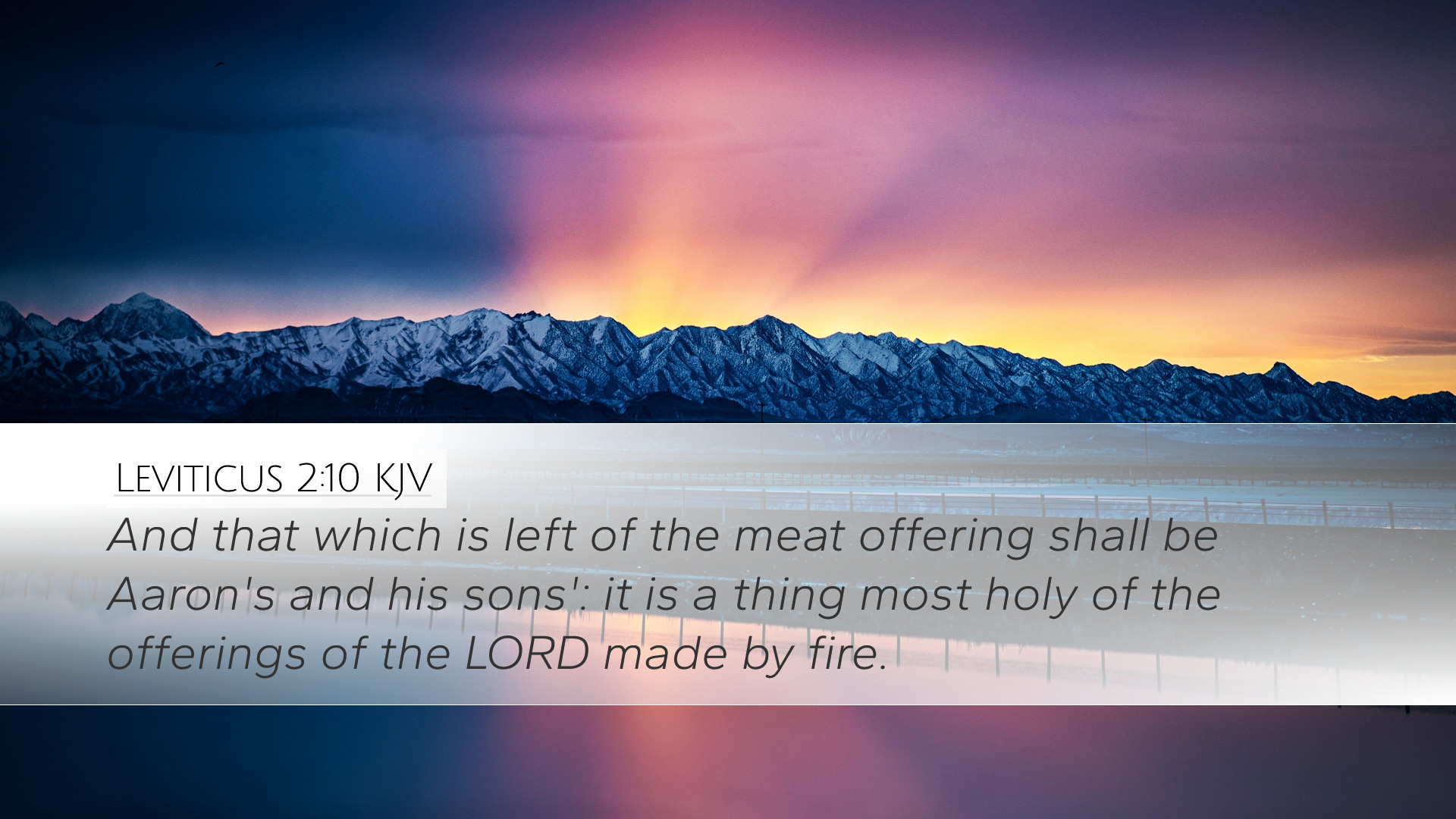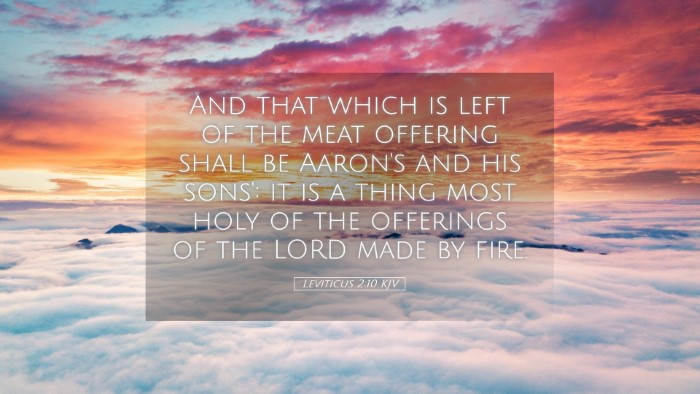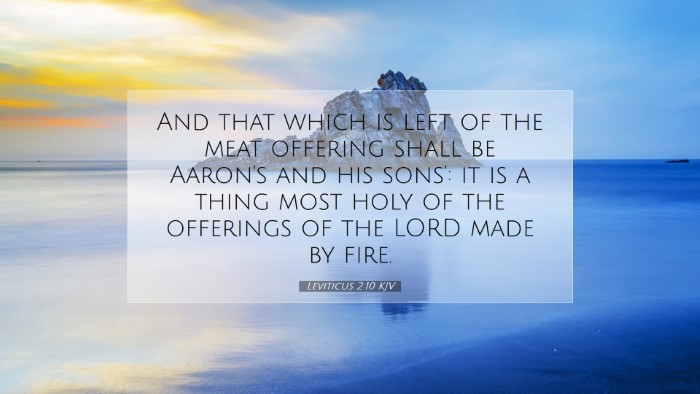Commentary on Leviticus 2:10
Leviticus 2:10 states:
"And that which is left of the meat offering shall be Aaron’s and his sons’: it is a thing most holy of the offerings of the Lord made by fire."
This verse falls within the larger framework of the ceremonial laws given to Israel, particularly addressing the grain offering or "meat offering." The significance of this offering, alongside its contents and the distribution of its remnants, becomes a focal point for understanding its theological implications.
Significance of the Grain Offering
The grain offering, presented in Leviticus chapters 2 through 6, shows a profound acknowledgment of God’s providence and a believer’s gratitude. According to Matthew Henry, the grain offering symbolizes the fruits of the land, underscoring the importance of acknowledging God’s provision in every aspect of life.
Purpose and Presentation
- Recognition of Divine Provision: Every grain offering symbolizes the faithful response of God’s people to His blessings.
- Acts of Worship: As Henry emphasizes, such offerings were integral acts of worship, reflecting a heart of gratitude and dedication.
- Proclamation of Holiness: The offerings were to be pure and unblemished, symbolizing the holiness of God and the necessity for His people to strive for holiness in their lives.
Theatail of Distribution
In the directive provided in Leviticus 2:10, the remaining portion of the grain offering was allotted to Aaron and his sons. This allocation served both a practical and symbolic purpose:
- Provision for the Priests: As observed by Albert Barnes, this was God's way of financially supporting the priests, allowing them to dedicate their lives fully to the service of the tabernacle without struggling for subsistence.
- Representation of Holiness: The portion allocated to the priests was considered "most holy," signifying that those who minister to God must partake of that which is sacred and set apart (Barnes).
Theological Implications
Adam Clarke recognizes the deeper theological implications associated with this practice, drawing parallels to the New Covenant and the role of Christ:
"The grain offering reflects the idea of Christ, the perfect sacrifice; just as the priest partook of the offering, so do we partake of Christ's sacrifice."
Clarke suggests that the division of the grain offering points to the necessity of holiness within those serving in the ministry and the faithful sustenance from God that ministers receive.
Holiness and Dedication
This verse emphasizes the call to holiness and the necessity of being set apart for God's service. For pastors and theologians, it serves as a reminder that the work of the ministry is not handled lightly; it involves careful stewardship of both the offerings made to God and the lives of those who serve Him. Such a perspective challenges leaders to lead lives of integrity and dedication.
Practical Applications
- Gratitude in Offerings: Reflecting on where one’s resources originate and ensuring that our offerings, whether monetary or otherwise, are rooted in gratitude and faith.
- Support for Ministers: The community of faith should ensure that those in ministry are supported, allowing them to focus on spiritual matters.
- The Call to Holiness: As in the times of Israel, ministers today are reminded to maintain a life of holiness to truly represent God’s kingdom and serve effectively.
Conclusion
Leviticus 2:10, while a specific directive regarding offerings, encapsulates profound truths regarding worship, divine provision, and the life of holiness. By studying this scripture, scholars and students of the Bible are encouraged to consider their own lives in relation to God’s holiness, assessments of gratitude within their offerings, and the importance of supporting those called to minister the Word of God. This ancient text resonates anew with contemporary issues of stewardship, worship, and community in the life of the church.


